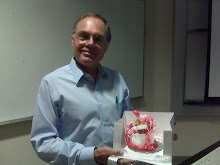Here's the Pitch...
The following is a MediaNote Classic. It was originally presented to MC101 classes in January 2017.
Your Aunt Mabel is holding a Tupperware Party. Friends, neighbors and relatives will assemble in the living room, relax over a bit of food and drink, and hopefully buy some Tupperware. It's a sales job, but it is also from someone you know. So you go and you buy.
The online version of this is the "Influencer." Influencers may post about a way of life or a product, but they're trying to sell you something. And tech-savvy young adults are more likely than most to be Influencers. NPR reports.
Questions...
•How do Influencers fit in with Paul Lazerfeld's 1940 People's Choice Study?
•According to the Indirect Effects Model, will the effects of an Influencer's message be predictable and uniform across the population seeing or hearing the message?
•Under the Transmission Model (SMCR), name the Sender, Message, Channel, and Receiver for the student Influencer in the story?
•In your estimation, are Influencers a passing fad, or are they here to stay? Why?
Labels: advertising, audience segmentation, career, commtheory, disintermediation, internet, medianoteclassic, SLO2, socialnetworking

